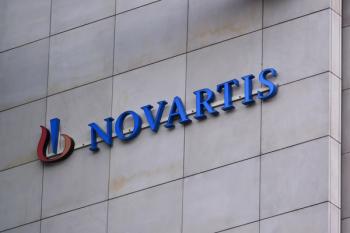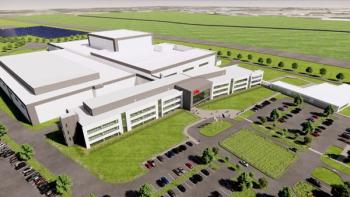
- Pharmaceutical Executive-03-01-2021
- Volume 41
- Issue 3
Biopharma’s Reputation Gets a Well-Earned Shot in the Arm
Amid vaccine heroics, its complex story may finally be resonating.
In my June 2020 column, “Will the Biopharma Leaders Please Take the Stage,” I wrote that biopharma has never had a greater opportunity to put its best foot forward and show the world how hard it is to be successful in our industry, but how powerful it is when we are.
My hope was that we would leave this pandemic with a much better reputation than when we went into it.
Over my 40-year career in this industry, it has always saddened me that the reputation of an industry that does so much good through saving lives is so poor. One year ago, according to The Harris Poll, only about one-third (32%) of Americans rated the industry positively; in other words, 68% rated it poorly.
As we ushered in a pandemic not seen for over 100 years, hearts and minds turned to the promise of the biopharma industry to develop the therapeutics and vaccines key to ending the pandemic, saving lives, and reopening our economy. The industry stepped up and did what it does best: use science to innovate in order to improve the lives of patients around the world. The biopharma industry is carrying the torch leading us out of the darkness.
This was met with an absolutely stunning surge in the industry’s reputation,with almost two-thirds of Americans now giving the industry a positive rating. In the most recent Harris Poll, 62% rated our industry as a 5, 6, or 7 on a 7-point scale, with 1 equating to “very bad” and 7 to “very good.” And this sharp increase in reputation was not just the result of feeling positive about the development of COVID-19 vaccines and therapeutics but had a halo effect by creating a greater appreciation for the many important contributions of our entire industry. Leaders have stepped up with a narrative which outlines the difficulty, cost, and complexity of innovative research and development.
CEOs pledge to lead with science
The CEOs of AstraZeneca, BioNTech, GlaxoSmithKline, J&J, Merck, Moderna, Novavax, and Pfizer pledged to lead with science and not to race a vaccine to market for emergency approval without conclusive positive data. This was extremely well-received by the public and instilled the necessary confidence in the integrity of the process and ultimately of a vaccine.
Ours is a complex story to tell, and the substantial risks and high costs associated with being successful in our industry are neither well-understood nor can they be underestimated. What other industry would persevere with a nearly 90% failure rate?
The industry must continue to capitalize on the momentum and expand the dialogue around the long road to pharma innovation, R&D efforts, and the time-tested benefits in improving the lives of patients.
It’s a long game, and persistence paid off
Moderna was founded in 2010 with the vision to create a new category of transformative medicines based on messenger RNA, or mRNA. From the beginning, the mission was to explore the full potential value and impact of mRNA over a long horizon, across a broad array of human diseases. Moderna’s first product candidate was nominated in 2014 and its COVID-19 vaccination authorized on Dec. 18, 2020. To date, I believe the company has raised well over $4 billion and is now just launching its first product—but possibly among the most important ones in 100 years.
On Dec. 11, Pfizer was the first company to introduce a COVID-19 vaccine in the US.
I don’t think anyone at Pfizer or Moderna would tell you that any of it was ever easy or without sometimes daunting challenges. The seeming overnight success of mRNA was only decades in the making. This was not an overnight success. In fact, research on pandemic-causing coronaviruses and vaccines to protect against them dates back to 2003 after the emergence of a related virus that caused the SARS outbreak.
The rate of innovation in our industry is accelerating at an unprecedented speed. Novel approaches to combating disease, including mRNA, gene therapy, cell therapies, CRISPR gene editing, targeted protein degradation, and regulation of the immune system place us on the edge of what is likely to be a spectacular decade of revolutionary advances. Oncology combinations in development, for example, offer the possibility of long-term remissions for patients.
In the words of William Blake, “What is now proved was once only imagined.”
Barbara Ryan is Founder, Barbara Ryan Advisors, and a member of Pharm Exec’s Editorial Advisory Board
Articles in this issue
almost 5 years ago
The Amazon Effect: A Data-Fueled Customer Experiencealmost 5 years ago
Why ESG Performance Metrics Matteralmost 5 years ago
Pharma and Biotech’s 2020 Full-Year Viewalmost 5 years ago
Persevering for Patientsalmost 5 years ago
IP and Capitalalmost 5 years ago
IP and COVID-19almost 5 years ago
Pharma Steps Up for Public Health Inequitiesalmost 5 years ago
FDA Relays Recent Achievements, Maps Plans for Progressalmost 5 years ago
IP and Collaborationalmost 5 years ago
Pharmaceutical Executive, March 2021 Issue (PDF)Newsletter
Lead with insight with the Pharmaceutical Executive newsletter, featuring strategic analysis, leadership trends, and market intelligence for biopharma decision-makers.




